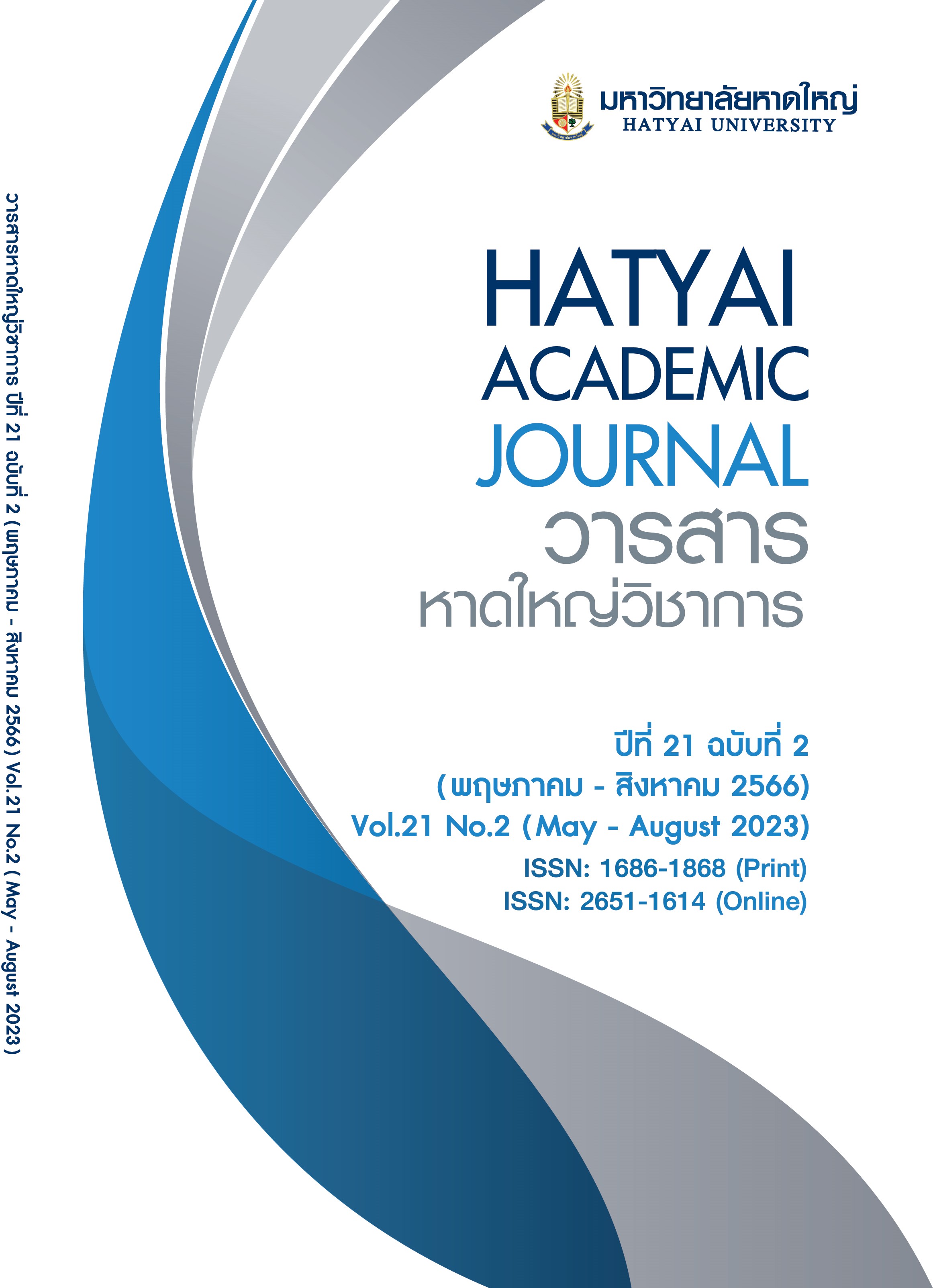Characters and the Various Needs of Out-of-School Children in Thailand
Main Article Content
Abstract
The study aimed to explore out-of-school children’s characteristics and analyze their needs for support, goals for education and careers. Voluntary sampling technique was used to select 35,003 out-of-school children in Thailand. A questionnaire was used for data collection. Quantitative data were analyzed using descriptive statistics, one-way ANOVA and correspondence analysis, whlist qualitative data were analyzed using content analysis and presented in word cloud. The research results revealed that the most of out-of-school children graduated at lower than grade 9. Moreover, 10% of samples had never been in the school. More than 50% of them had not identification documents. The most important factor that caused them to be out-of-school children was family poverty. Results from correspondence analysis showed that children had different education and career goals classified into 3 groups, 1) no goal 2) need to continue study, and 3) no need to continue study. The results from the study reflected that the education support strategies or policies should be designed based on out-of-school children needs in each group
Article Details

This work is licensed under a Creative Commons Attribution-NonCommercial-NoDerivatives 4.0 International License.
All published articles are evaluated by three qualified peer reviewers from various institutions through a double-blind process, where reviewers do not know the authors’ identities and authors do not know the reviewers’ identities. The content and articles in the Hatyai Academic Journal reflect the authors’ views only and are neither the opinions of the editorial board nor the responsibility of Hatyai University. The Editorial Board of the Hatyai Academic Journal allows articles to be reproduced for academic purposes, on the condition that the original source is clearly cited.
References
Boontavee, P. (2005). Famity factors and social behaviors affecting drop-out of private vocational school students in Chiang Mai Province (Master’s thesis). Chiang Mai University, Chiang Mai. [in Thai]
Chitradub, S. (2019). Education for underprivileged children with the concept of “No one left behind”. Bangkok: Equitable Education Fund. [in Thai]
Jones, K., Wilson, R., Clark, L., & Dunham, M. (2018). Poverty and parent martital status influences on student achievement. Educational Research Quarterly, 42(1), 62-80.
Kowtrakul, S. (2013). Educational psychology. Bangkok: Chulalongkorn University Printing House. [in Thai]
Letseka, M., & Breier, M. (2008). Student poverty in higher education: The impact of higher education dropout on poverty. In S. Maile (Ed.), Education and poverty reduction strategies: Issues of policy coherence (pp. 83-101). Cape Town, South Africa: HSRC.
Maslow, A. H. (1970). Motivation and personality (2nd ed.). New York: Harper & Row.
Ministry of Education. (2010). National Education Act B.E.2542 (1999) and Amendments (Second National Education Act. B.E. 2545 (2002) and B.E. 2553 (2010). Bangkok: Kurusapa Printing. [in Thai]
Nakornthap, A. (2014). Unprivileged children: Critical point for future of the nation. Bangkok: Sahamitr. [in Thai]
Office of the Education Council. (2017). Report on the synthesis of educational indicators in Thailand according to the target of sustainable development. Bangkok: Phrikhwangraphic. [in Thai]
Office of the National Economic and Social Development Council. (2021). National strategy and country reform (revised). Retrieved from http://www.ratchakitcha. soc.go.th/DATA/PDF/2564/E/044/T_0001.PDF [in Thai]
Office of the Teacher Civil Service and Educational Personnel Commission. (2020). Workforce ratio criterion for government teachers and educational personnel in schools under OBEC. Retrieved from https://otepc.go.th/th/content_page/ item/3238-23-3563.html [in Thai]
Pathumcharoenwattana, W., Pathumcharoenwattana, W., Charungkaittikul, S., Chuymanee, K., Chudasring, R., Chumpong, C., … , Mohamadrugsapol, M. (2021). Advancing of driving mechanisms of out-of-school teacher, children and youth. Bangkok: Equitable Education Fund. [in Thai]
Pitukthanin, A., Kao-iean, S., Sumano, B., Boonmee, T., Pulsukserm, C., Hayook, C., … , Tanrattana, A. (2020). Development of knowledge and a model education for children in street in Bangkok. Bangkok: Equitable Education Fund. [in Thai]
Sariwat, L. (2014). Psychology for teachers. Bangkok: Odeon Store. [in Thai]
Shahrawat, A., & Shahrawat, R. (2017). Application of Maslow’s hierarchy of needs in a historical context: Case studies of four prominent figures. Psychology, 8(7), 939-954.
Srisuttiyakorn, S. (2019). Educational inequality and its factors: Multilevel analysis integrated with median-based class of generalized entropy inequality index. Journal of Research Methodology, 32(3), 341-379. [in Thai]
Tantichuwet, P. (2016). Appropriate educational provision guidelines for out-of-school children: Case study at Tak Province (Research report). Bangkok: Dhurakij Pundit University. [in Thai]
The Secretariat of The House of Representatives. (2012). Child rights in Thai Constitution. Retrieved from https://www.parliament.go.th/ewtadmin/ewt/parliament_parcy/download/article/article_20120821094823.pdf [in Thai]
Thongdeelert, C., Pathumcharoenwattana, W., Akkharasilachai, T., Sabaychai, T. K., Sabaychai, W., Toniti, N., & Vittayasomboon, T. (2020). A study of BOK of alternative education in Thai social with guidelines to action toward sustainable development. Bangkok: Thailand Science Research and Innovation (TSRI). [in Thai]
United Nations Development Programme. (2016). Human development report 2016. Retrieved from http://hdr.undp.org/sites/default/files/2016_human_development_report.pdf [in Thai]
Woraurai, M. (2009). Lifestyles of steet children in Bangkok (Master’s individual study report). Retrieved from https://doi.nrct.go.th/ListDoi/listDetail?Resolve_DOI=10.14457/TU.the.2009.323 [in Thai]


